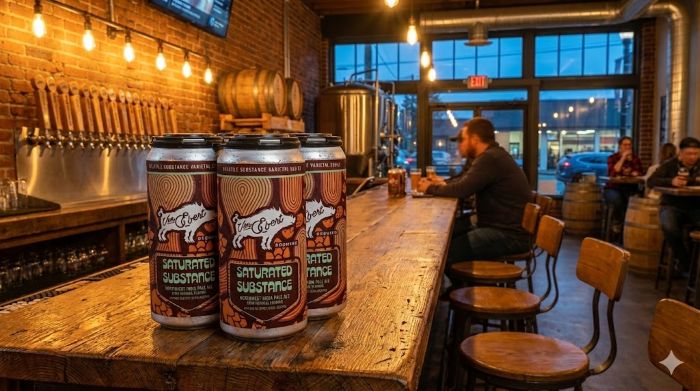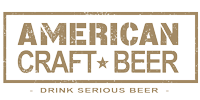Studying Fermentation Science: Academic Pathways for Aspiring Craft Brewers
Studying Fermentation Science: Academic Pathways for Aspiring Craft Brewers

Fermentation has always been part of human history, from ancient bread-making to the booming craft beer scene. Today, it’s more than a tradition; it’s a serious academic pursuit. Universities and brewing schools now offer programs tailored to those who want to master the science behind yeast, hops, and fermentation. Students looking into this path often wonder where to begin and which programs are worth their time.
It is in this respect that academic pathway planning is important. Other schools place more of an emphasis on science-based coursework, some are blending brewing with business courses, and others are two-track curricular programs. Decisions are especially difficult in a time when people are in search of the next step in their careers. With so many assignments to juggle and research-intensive projects, supplementary assistance like the affordable research paper help services can help shoulder your academic burden as you tackle this niche profession.
The Rise of Fermentation Science as an Academic Field
The worldwide growth of craft beer has presented a high demand for professionally trained brewers. A side hobby is now an industry with billions of dollars at stake, which prides itself on precision and innovation. Universities started realizing this transition and started to develop specialized fermentation programs. Learners now have an array of degree programs that build on any of these disciplines, including biology, chemistry, engineering, and even business, with a beer-focused orientation.
Entry Routes: From High School Preparation to College Applications
Some of the time, the journey begins well before college. Students in high schools who want to become brewers should pay attention to such subjects as chemistry, biology, and math. A good command of the laboratory and an ease with scientific experimentation help make the jump. In applying to colleges, science projects or food-related research, or even participation in sustainability clubs, can be touted in applications.
Undergraduate Programs in Fermentation Science
At the undergraduate level, students encounter programs designed to balance theory with practice. Degree options include:
- BS in Fermentation Science
- BS in Food Science with brewing concentration
- BS in Brewing & Distilling
The routes offer the scientific background that is required to comprehend fermentation on a professional scale. Industry relationships and pilot breweries can be found at the undergraduate level, where the programs will typically include student opportunities to brew, experiment, and perfect recipes as a course requirement.
Graduate-Level Opportunities: Master’s and PhD Options
Graduate programs enable further specialisation of students. A Master of Science in Fermentation Science or Brewing Engineering may include topics in more advanced microbiology, yeast genetics, or process design. Often, students engage in a fermentation project as part of their thesis or lab work, allowing them to apply scientific theory to real-world brewing challenges. The research on a doctoral level tends to break new ground, enhancing such means of sustainability as waste correction in breweries or exploring new forms of fermentation. Such courses are appealing to students who plan to either do research or teach in a university.
Certificate and Diploma Programs for Career Switchers
Not all aspiring brewers do not necessarily intend to pursue a four-year program. Diploma and certificate courses are shorter and more career-oriented. Available through universities and independent brewing schools, such programs can range in length from a few months to a year. They are perfect for those shifting careers, they provide immediate lab time and course-intensive load without all of the academic part of a degree.
Continuing Education and Professional Short Courses
As to those who are already in the brewing industry, the continuing education fills in gaps as well as updates knowledge. Courses on sensory analysis, quality control, and sustainability offer hands-on brewers a shot at staying up to date with the brewing business. Professional associations frequently combine with universities to offer these classes and are therefore made available throughout the world.
Hands-On Academic Training: Labs, Pilot Breweries, and Internships
The most identified feature of any fermentation science degree is the practical aspect. Students spend time in labs, recording the action of yeast, and in pilot breweries, sampling recipes, as well as in internships following a working brewer. A combination of theory and practice also means that the graduates are well-equipped with the technical confidence to carry out brewing operations as soon as they leave.
Essential Coursework Across Programs
Regardless of the degree or program length, certain subjects form the backbone of fermentation science education. Typical coursework includes:
- Microbiology
- Biochemistry
- Engineering principles
- Quality control and analysis
- Business management
These courses equip students not only with brewing skills but also with an understanding of the broader food and beverage landscape.
Choosing the Right Academic Path: What Students Should Consider
The ability to choose between pathways can be achieved through the balance of personal aims and realities. Students interested in research careers would tend to complete graduate degrees, whereas those interested in joining the workforce would tend to complete a certificate or diploma. According to Tutor Angela, who is an expert in the field of education and was consulted to help with this article, students need to take the time and rigorously consider program curriculum and post-development plans prior to making a choice. Her suggestions stressed taking a look at faculty expertise, connections with the industry, and possibilities to have practical experience.
Technology is increasingly becoming an important part of academic assistance. Such an example is a paper typer on MyPaper24, as it provides students with the opportunity to practice writing and editing essays, but concentrates their efforts on technical assignments. These applications can be used to counterbalance weighty requirements in science with writing assignments that are a typical offering of academic programs.
Brewing Career Paths
Fermentation science has shifted to the mainstream of the contemporary curriculum of the brewing industry. The availability of pathways varies according to whether you want to study an undergraduate course, a PhD, or a certificate or short course; there are options available to suit the path you want to study. From foundational techniques to innovative breakthroughs, like when a Singapore student crafts ‘probiotic’ beer, the field continues to evolve. It’s about locating the academic path that is closely aligned to your vision of a career in craft brewing.


















